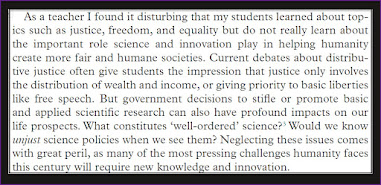"The media is completely hopeless when it comes to conveying information about science and public health", episode #3,415.
The WHO released this report on aspartame, and concluded:
The committee therefore reaffirmed that it is safe for a person to consume within this limit per day. For example, with a can of diet soft drink containing 200 or 300 mg of aspartame, an adult weighing 70kg would need to consume more than 9–14 cans per day to exceed the acceptable daily intake, assuming no other intake from other food sources.
As a general rule of thumb it is probably not advisable for a person to consume more than 10 cans of anything (or to read media headlines).
A sample of the media headlines on the report include:
Aspartame may cause cancer, says WHO. So is it time to call it quits?
The WHO says aspartame could cause cancer. Should you ditch diet soda?
Which foods contain aspartame? The artificial sweetener is now
considered a 'possible carcinogen'
I long for the day when a scientific study quantifies the risk of harm from media headlines (not doubt there are such studies). Would be curious to see what the media headlines on such a study would be!
UPDATE: Naturenews has a news item on the report here, and this excerpt is very telling:
"The new classification “shouldn’t really be taken as a direct statement that indicates that there is a known cancer hazard from consuming aspartame”, said Mary Schubauer-Berigan, acting head of the IARC Monographs programme, at the press conference. “This is really more of a call to the research community to try to better clarify and understand the carcinogenic hazard that may or may not be posed by aspartame consumption.” Other substances classed as ‘possibly carcinogenic’ include extracts of aloe vera, traditional Asian pickled vegetables, some vehicle fuels and some chemicals used in dry cleaning, carpentry and printing. The IARC has also classified red meat as ‘probably carcinogenic’ and processed meat as ‘carcinogenic’."
The public messaging of cancer epidemiology typically
confuses more than it enlightens. And
this story is a great example of that.
Basically the message conveyed is that something new was classified as a
“possible” cancer hazard so researchers will do more research. This basically means, “Hey cancer researchers,
we have classified new possible cancer hazards so you can get more research
funding to study these hazards given that the existing research did not find
the evidence needed to actually justify classifying the substance as an actual
cancer hazard”. It is basically a way of
leveraging public perception/angst about cancer risks to get more research
funding to do the research to determine if in fact there is a cancer risk worth
worrying about in the first place. Given
there are over 200 types of cancers, and a near infinite list of possible
environmental hazards, this is money well that could never be filled.
Cheers,
Colin














